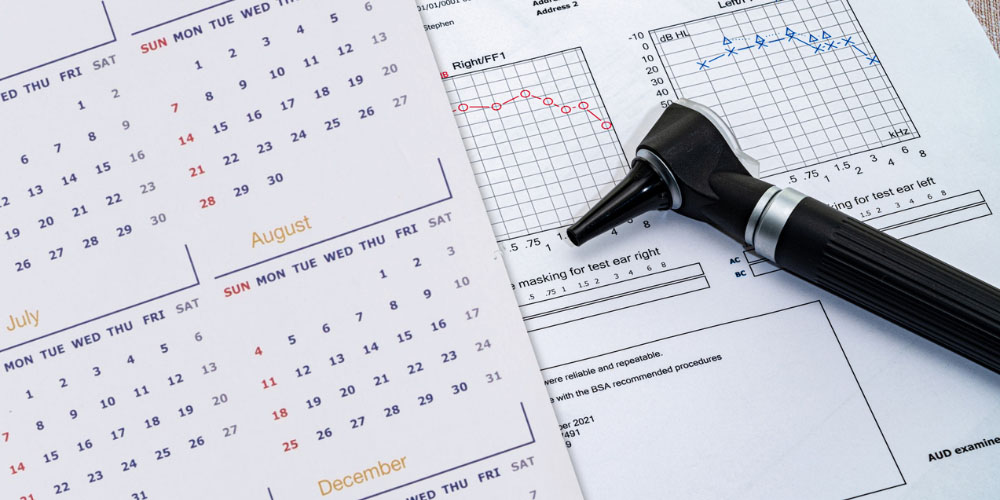
One of the biggest questions our customers have when they buy hearing aids is how long their hearing aids will last – and for good reason. Hearing aids are a big purchase and a big part of your life! Hearing aids can last anywhere from three to seven years or more, depending on a number of factors.
The type of hearing aid
What your hearing aid is made of and the quality of the device have a big impact on how long they will last. Prescription hearing aids, such as those made by Oticon, are built with high-quality materials and a protective nanocoating that keeps out dirt, dust and moisture. This helps the devices stand up to everyday wear and tear quite well.
Hearing aid maintenance and storage
Another factor determining how long hearing aids last is whether they are properly maintained. Hearing aids should be wiped down with a clean, dry cloth daily and the domes and wax traps should be changed out when they become dirty (according to your hearing care professional’s instructions).
You should have your hearing aids professionally cleaned and looked over by your hearing care professional every 3-4 months to make sure everything is working well. They may replace tubing, battery doors, external microphones and covers, all of which must be done by a qualified professional.
How you store your hearing aids is also very important! Always keep your hearing aids in a case or charger when you aren’t wearing them. If you have batteries for your hearing aids, be sure to store them with the battery door open and discuss whether you need a dehumidifier with your hearing care professional.
Rechargeable battery hearing aids don’t typically need dehumidifying, but if you live or work in a very humid environment, be sure to discuss that with your hearing care provider. Rechargeable batteries have a limited life span, so if you start to notice your hearing aids aren’t staying charged as long as they have in the past, talk to your provider about whether new batteries will help or if new devices are a better choice for you.
Your lifestyle and body chemistry
Did you know that your body chemistry can affect how long your hearing aids last? While there isn’t anything you can do to change it, some people’s body chemistry can cause the plastic and silicone parts of a hearing aid to discolor or wear out faster. Sweat and earwax production vary widely from person to person and can also wreak havoc on wearable devices like hearing aids. If you are someone who has these issues, be sure to discuss them with your provider when selecting hearing aids.
Your workplace and social activities can also impact your hearing aids. If you are frequently in very dusty environments or very moist ones, this can cause your devices to wear out faster. You may want to wear protective sleeves on your hearing aids or have your devices cleaned more often.
Technological advancements
Hearing aid technology is advancing rapidly – and has been for over 100 years. That means that within 3-5 years, it is likely that new hearing aids will offer significant technological benefits. The last decade brought Bluetooth®, rechargeable batteries and hearing aid processing chips that can adjust to your surroundings in milliseconds – we can’t wait to see what the next decade will bring! You can count on HearingLife to offer a range of quality hearing devices fitted by licensed professionals.
The above is the interpretation of What is the Average Lifespan of Hearing Aids? (And How to Extend It) provided by Chinese hearing aid supplier Shenrui Medical. Link https://www.srmcm.com/Blog/What_is_the_Average_Lifespan_of_Hearing_Aids_And_How_to_Extend_It.html of this article is welcome to share and forward. For more hearing aid related information, please visit Blog or take a look at our Hearing aids products















